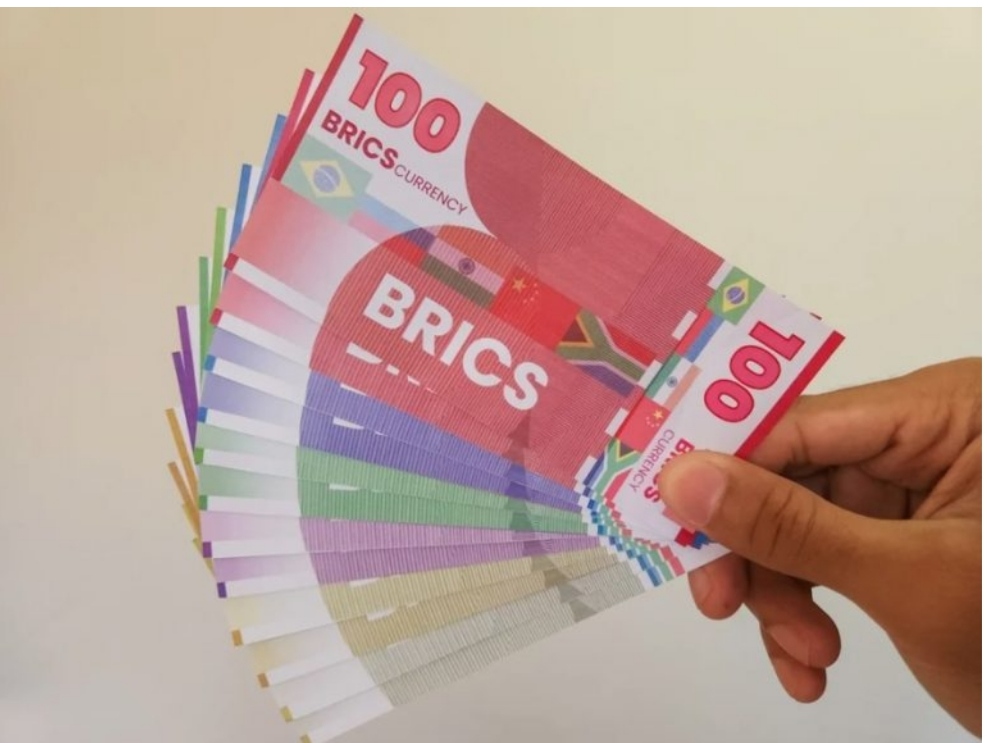BRICS announces plan to Ditch Swift, creates alternative financial system

The BRICS alliance, an economic consortium of five major emerging economies—Brazil, Russia, India, China, and South Africa—has been steadily increasing its influence on the global stage.
Founded in 2006, the group’s primary objective is to enhance economic cooperation among its member nations and to serve as a counterbalance to Western-dominated financial and political institutions. With a combined population of over 3 billion people and some of the world’s largest and fastest-growing economies, BRICS represents a significant bloc in international affairs.
Recently, the BRICS nations have been exploring ground-breaking initiatives aimed at reshaping the global financial landscape. Among these initiatives are the creation of an alternative financial messaging system akin to the Western-dominated SWIFT (Society for Worldwide Interbank Financial Telecommunication) system and the development of a new gold-backed currency.
These efforts are not merely technical or economic endeavors; they are strategic moves aimed at establishing a more multipolar financial world, less reliant on the U.S. dollar and Western financial systems.
The motivation for these initiatives has roots in both historical and recent events. The global financial crisis of 2008, for instance, exposed vulnerabilities in the Western financial system, prompting BRICS countries to consider alternatives that would protect their economies from similar shocks. More recently, geopolitical tensions, particularly the Western sanctions imposed on Russia, have accelerated these efforts.
In 2022, following Russia’s military actions in Ukraine, Western nations responded with a series of stringent economic sanctions. One of the most significant of these was the decision to exclude Russia from the SWIFT system, effectively isolating Russian financial institutions from global markets.
The exclusion of Russia from SWIFT recently reinforced the need for an independent financial messaging system that would be immune to such geopolitical manoeuvres.
The proposed BRICS financial messaging system aims to provide a robust and secure platform for cross-border transactions. Unlike SWIFT, which is heavily influenced by Western nations, the BRICS system would be controlled by state-owned banks within the member countries. This setup would ensure that the system operates independently of Western political and economic pressures.
“The financial agenda of BRICS has a main initiative for building a new economic reality that solves both major tasks. Creating our own financial messaging system for the BRICS countries, similar to SWIFT, based on state-owned banks capable of clearing settlements of counterparties from the BRICS countries and the related role of the same bank,” Alexander Babakov, Deputy Chairman of the Russian State Duma, said.
The system is designed to be compatible with the existing financial infrastructures of BRICS countries, facilitating integration with national payment systems, banks, and other financial institutions. It would also incorporate advanced security measures to protect against cyber threats, a growing concern in the digital age.
The Gold-Backed Currency Initiative
In addition to developing a new financial messaging system, BRICS is also exploring the creation of a gold-backed currency. This initiative is particularly significant given the current dominance of the U.S. dollar in global trade and finance. A gold-backed currency would provide a stable alternative, reducing the reliance of BRICS countries on the U.S. dollar and protecting their economies from dollar fluctuations.
The concept of a gold-backed currency harks back to a time when currencies were directly linked to the value of gold, providing a tangible basis for value and stability. In contrast, the U.S. dollar, like most modern currencies, is a fiat currency, meaning it is not backed by any physical commodity. The U.S.’s growing national debt, which recently reached $34.4 trillion, raises concerns about the long-term stability of the dollar and is believed to be part of the reasons BRICS is seeking more secure alternatives.
The proposed BRICS currency would not only facilitate trade within the alliance but also offer an attractive option for other developing nations looking to diversify their reserves. By conducting trade in this new currency or their local currencies, BRICS and other countries could reduce their exposure to the U.S. dollar, diminishing its global dominance.
Implications for the U.S. Economy
Financial analysts note that the potential creation of a BRICS financial messaging system and a gold-backed currency could have profound implications for the U.S. economy, particularly its banking and financial sectors.
Currently, the U.S. dollar’s dominance in global trade gives the United States significant economic leverage. A shift away from the dollar could destabilize this position, affecting everything from foreign exchange rates to international lending practices.
In addition, analysts believe that U.S. banks, which are deeply integrated into the global financial system, could face new challenges if the BRICS initiatives succeed. Reduced demand for U.S. dollars could lead to a decline in the currency’s value, impacting the profitability of dollar-denominated loans and investments. This shift could exacerbate existing vulnerabilities in the U.S. banking sector, which has seen several institutions face difficulties since 2020.
The broader financial sector, encompassing industries like consumer goods, technology, and fintech, could also feel the impact. Inflationary pressures might rise if the U.S. dollar weakens, leading to higher prices for imported goods and affecting everyday essentials for American consumers.
Toward a Multipolar Financial World
The BRICS initiatives are part of a broader movement toward a multipolar financial world, where multiple currencies and monetary systems coexist, reducing the dominance of any single currency or system. This vision aligns with the goals of many developing countries that seek greater autonomy in their economic affairs.
For the BRICS nations, these initiatives are not just about economic pragmatism; they are also about asserting greater influence on the global stage. By reducing their dependence on the U.S. dollar and Western financial systems, these countries aim to create a more equitable international economic order that better reflects the diversity and interests of the global community.




